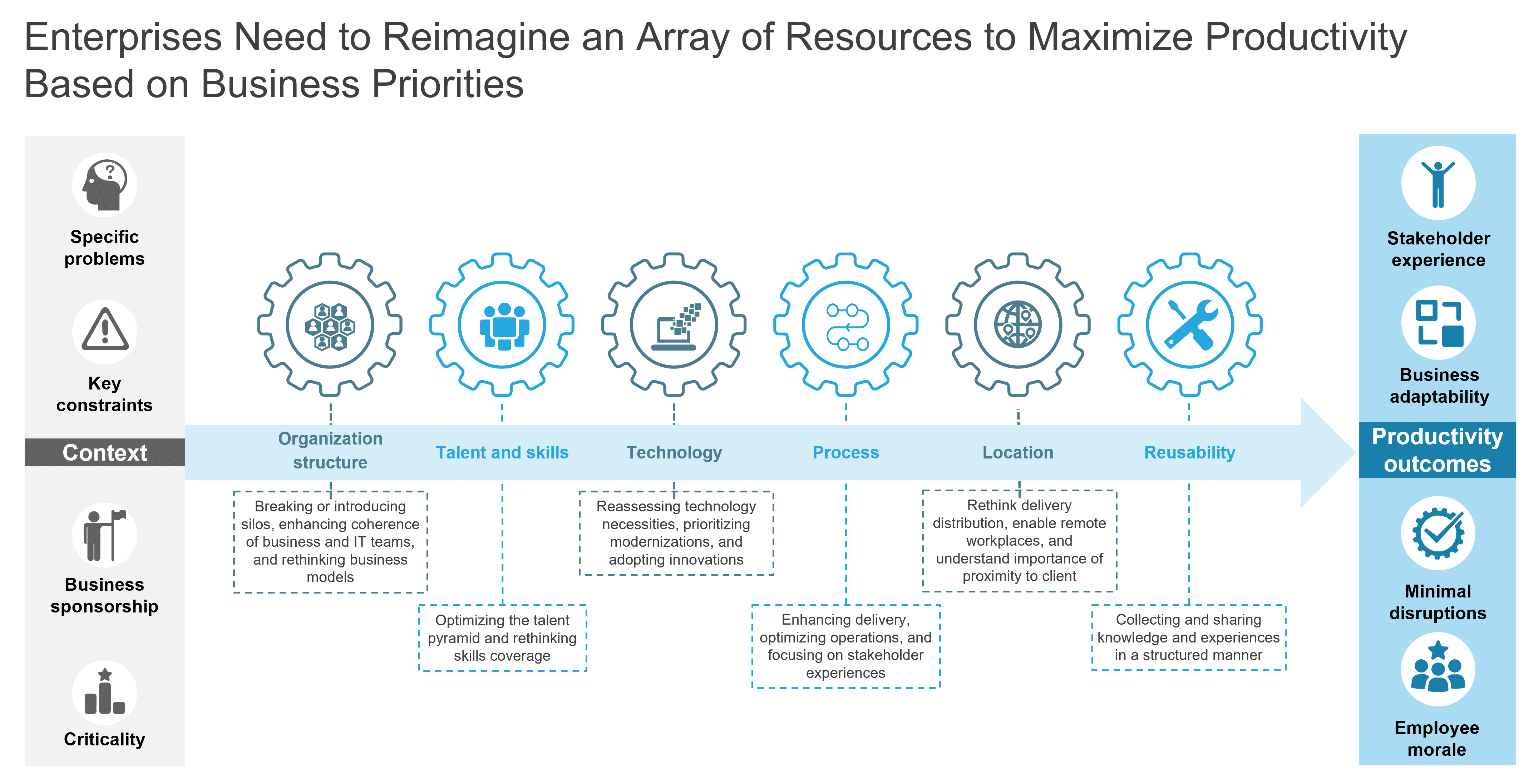At the forefront of innovation across products and processes, Global Capability Centers (GCCs) today are creating a competitive advantage for their global enterprises and those based in India are particularly well-positioned to accelerate to the next level. With increasing global leadership roles, these Centers are providing end-to-end support on complex work areas to deliver business impact that goes well beyond cost savings and operational improvement.
Year 2021 saw many GCCs initiate their transition to a new normal post the pandemic – one anchored on increased endorsement for the GCC model, increasing responsibilities beyond traditional workstreams and accelerated adoption of digital technologies. However, these organizations will still face the challenges of navigating through factors such as accessing niche talent, adopting newer digital technologies, handling rising consumer expectations, increasing demand for analytics, and rapidly transforming business models driving the need to regularly recalibrate strategies.
The following five areas emerged as being critical to the success of these Centers:
- Prepare for the long haul – ready a war chest to take the talent scramble head on
Structural issues suggest demand-supply will remain globally imbalanced in the near term. GCCs will need to make conscious efforts to address talent-related challenges considering an array of avenues such as investing in improving brand perception in the talent market, out-of-the-box talent acquisition methods (such as hiring from alternative industries, partnering with the external ecosystem, developing contingent workforce strategies and acqui-hiring), creating learning cultures, helping the workforce to continually develop skills, and creating targeted programs to promote diversity, equity, and inclusion, among others.
- Understand the future of work is NOT the future of work from home
A principle-led design approach to global workforce strategy will be key to the future of work. A holistic view on the future of work that takes into account the three Ws – Worker (talent model, sourcing model), Workplace (locations portfolio, WFH/hybrid), and Workways (technology, operating model) – will be critical to future growth and evolution.
- Expand services beyond traditional areas leveraging cross-functional skills
While IT and digital services continue to remain a priority, GCCs should also look to tap into non-traditional services areas such as marketing where a combination of business understanding, and tech skills can help deliver greater value (e.g., targeting customers better). Consulting or internal advisory is another area where some GCCs are looking to expand their capabilities. This includes providing thought leadership and guidance to entities beyond the GCC in areas such as Intelligent Automation adoption.
- Define location and talent strategies to move beyond “cheap and big” to “sustainable (long-term) and inclusive”
Location and talent strategies need to move beyond conventional paradigms to include Environmental, Social and Governance (ESG) goals, including diversity and sustainability. Factors such as climate change has material impact on services delivery. Many organizations are already factoring in diversity requirements into their long-term location and talent strategies.
- Embrace productivity as your superpower
Organizations need to adopt a multi-pronged approach to improving productivity and achieving business objectives. Cost and operational improvements are hygiene! A sustainable approach to managing productivity needs to consider factors such as:
- Breaking or introducing silos, enhancing coherence of business and IT teams, and rethinking business models
- Optimizing the talent pyramid and rethinking skills coverage
- Reassessing technology necessities, prioritizing modernizations, and adopting innovations
- Enhancing delivery, optimizing operations, and focusing on stakeholder experiences
- Rethinking delivery distribution, enabling remote workplaces, and understanding the importance of proximity to the client
- Collecting and sharing knowledge and experiences in a structured manner

The value proposition of India GCCs has evolved significantly over the past decade. India GCCs are truly poised to reach greater heights – integrating more deeply with their enterprises, blurring administrative lines across geographies, and expanding revenue impact potential. Click here to learn more about Everest Group’s research on GCC evolution.
Author: Bharath M, Practice Director, Everest Group (bio). Reach out to Bharath M for any questions or if you would like to continue the discussion.







